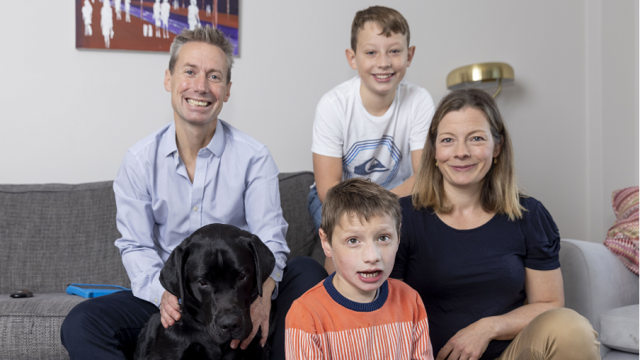No need for a blank slate: the role of orthoptists in special schools eye care
We welcome a guest blog from Louise Allen on the role of orthoptists in supporting the development of the NHS special schools eye care service.
Orthoptists are experts in diagnosing and treating defects in eye movement and problems with how the eyes work together, called binocular vision. They see a wide range of patients with a variety of vision conditions in clinic and community. This includes children with special educational needs and disabilities. Over to Louise!
Hello, I’m Louise Allen, a Lecturer in Orthoptics at the University of Liverpool. I specialise in eye care for children with Special Educational Needs (SEN). As representative for the Orthoptic Professional Body (British & Irish Orthoptic Society, BIOS), I have been supporting NHS England and SeeAbility in the development of an eye care service for children in special schools.
Around 40-50% of children in special school have no reported history of eye care. This gap has been reported multiple times by independent researchers. I truly believe this staggering figure represents, not only the problem but the injustice of it.
I have provided Orthoptic-led eye care in special schools for over 15 years. On hearing about developments to special school eye care I really wanted to help, as an Orthoptist and as an advocate of the children I’ve spent my career learning from. As we know, the tailored approach required for children with SEND can be difficult to manage amongst the complex landscape of healthcare, funding, and standardised protocols. For this service to address the gap and truly serve the children & families who access it – we were going to need to break the mould.
With NHS England, a team of passionate professionals and patient representatives, including from the eye care workforce, we came together with views to create a specialist service that allowed children in special school the eye care that they deserve. With time, dedication, and compromise we agreed on a model that would fulfil this need. It would also overcome barriers that prevent children & families accessing a multi-disciplinary team of eye health professionals in the school environment.
NHS England evaluated the model that was created by something called a ‘Proof of Concept’. The model was carefully developed to allow specialist assessment, multi-disciplinary working, training, and links across eye care service. This meant that each provider could tailor what was required for that area. Within the testing fee and service specification was enough flexibility to allow Orthoptists, Optometrists, and Dispensing Opticians to support the service where required. During the proof of concept phase, NHS England, worked with our professional body to build on existing Orthoptic-led special school services. This used decades worth of experience from the Orthoptic profession to support roll out of their national scheme.
The evaluation has been an overwhelming success. A huge step forward in overcoming barriers in access to eye care by the children that need it most, however, there are some proposed changes. Unfortunately, the evaluation did not explore how the proof of concept phase built-up as well as developed new services. The joined-up approach with communication between service providers, is a huge issue for families of children with SEND. For this reason, I continue to advocate working together across boundaries, to support links between existing Orthoptic-led services, hospital providers of specialist eye care, and the NHS England service.
Changes to the professional make-up, training, and funding of the NHS England service are proposed. This could result in a move from the more flexible multi-disciplinary model towards the mainstream high street model. The restrictions that the high street model must operate to means there are elements that are not fit for purpose in special schools. It could limit the child’s access to Orthoptic expertise, in-school glasses dispensing, and follow-up care. In that case, children may need to be referred into hospital and go the high street for glasses to be fitted. Duplication of work, leading to more hospital referrals, caused by an unsuitable or fragmented service are the risks posed to the children and the NHS.
We have made significant progress and this is all amazing news!! With minimal adjustments to the proof of concept model, NHS England has the chance to lead on some ground-breaking change to eye care services for children with SEN. Working together, across boundaries, and funding a more one-stop-shop kind of service will mean that children can spend more time enjoying family, education, fitness, and friends than trying to get their eyes tested in the best place with the appropriate expertise.
Read more about the work of orthoptists and their representative body BIOS.




